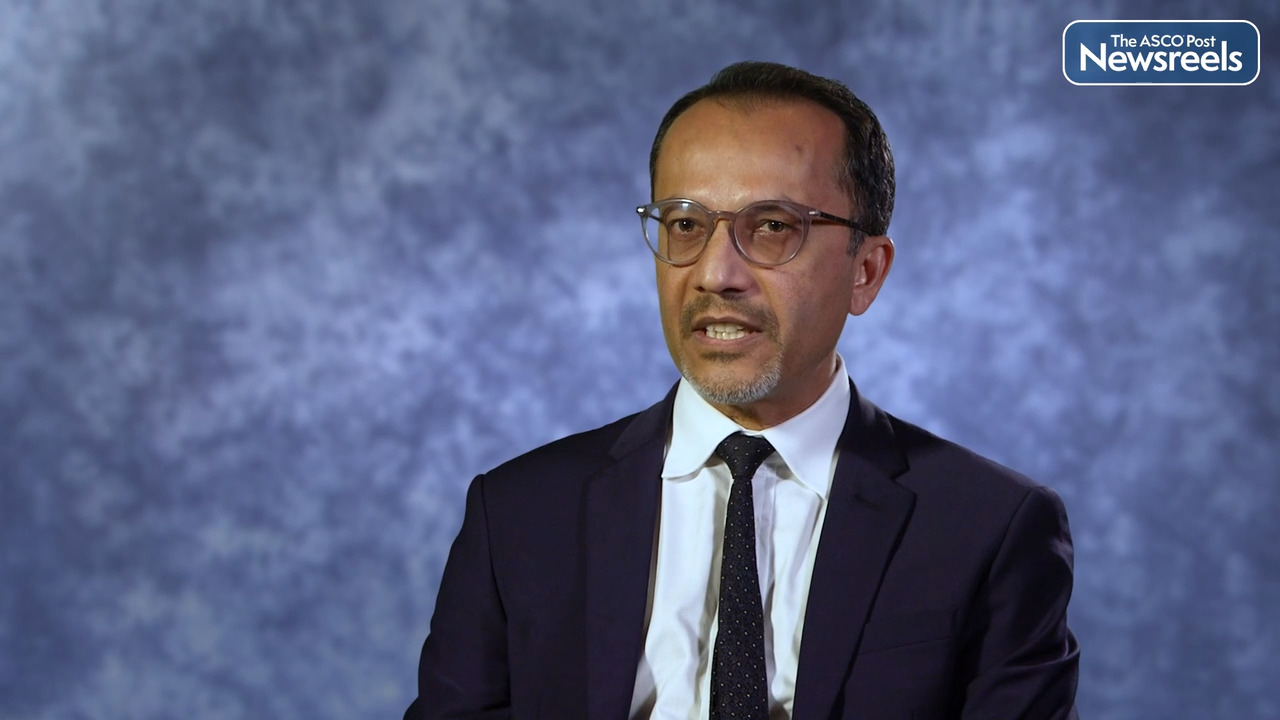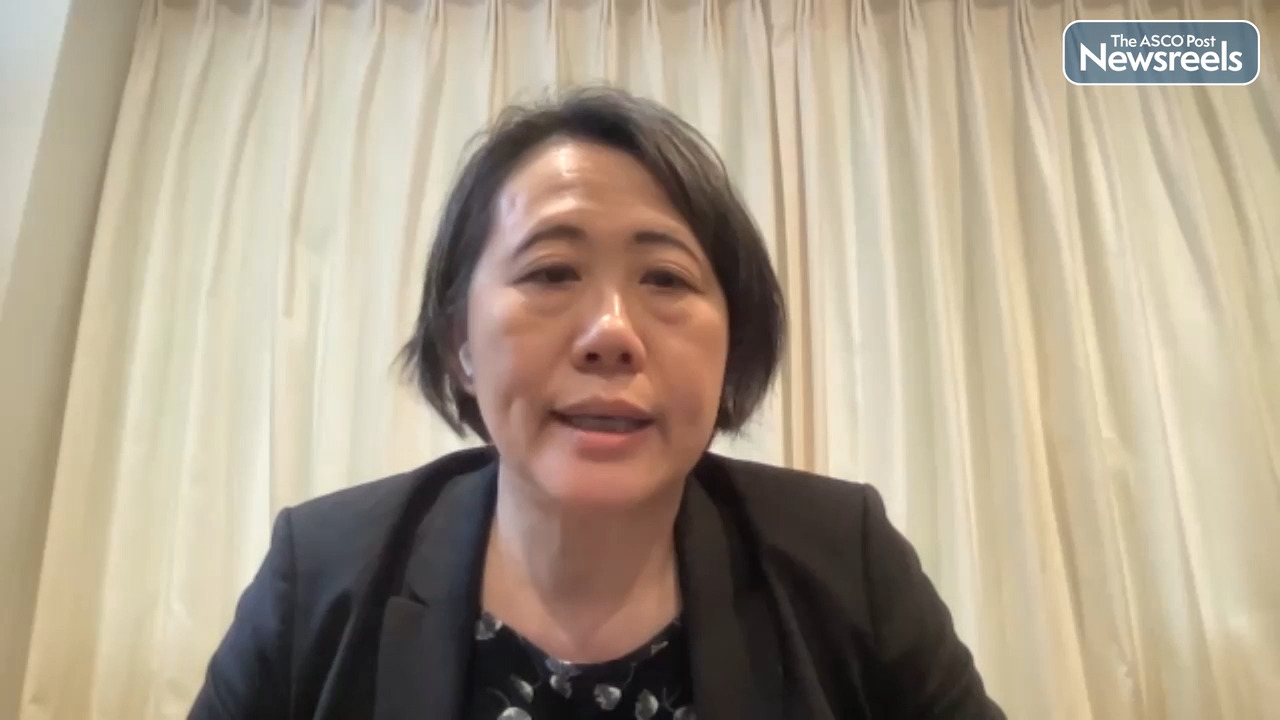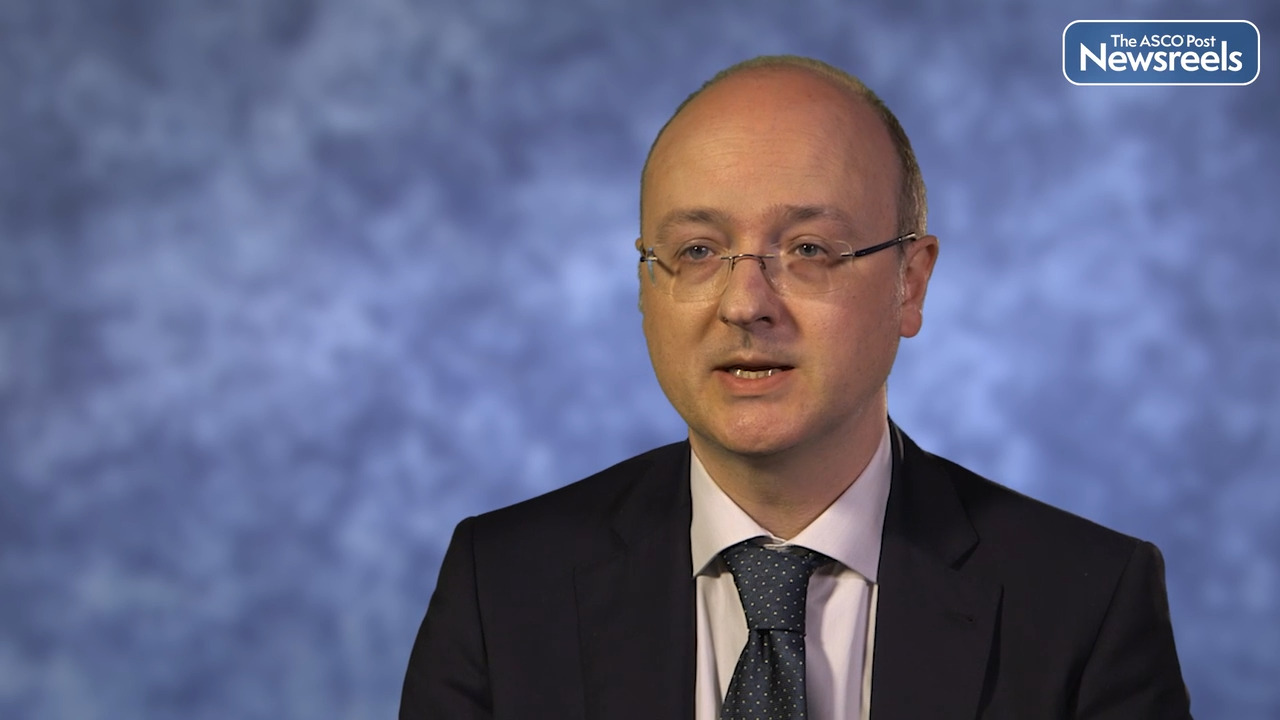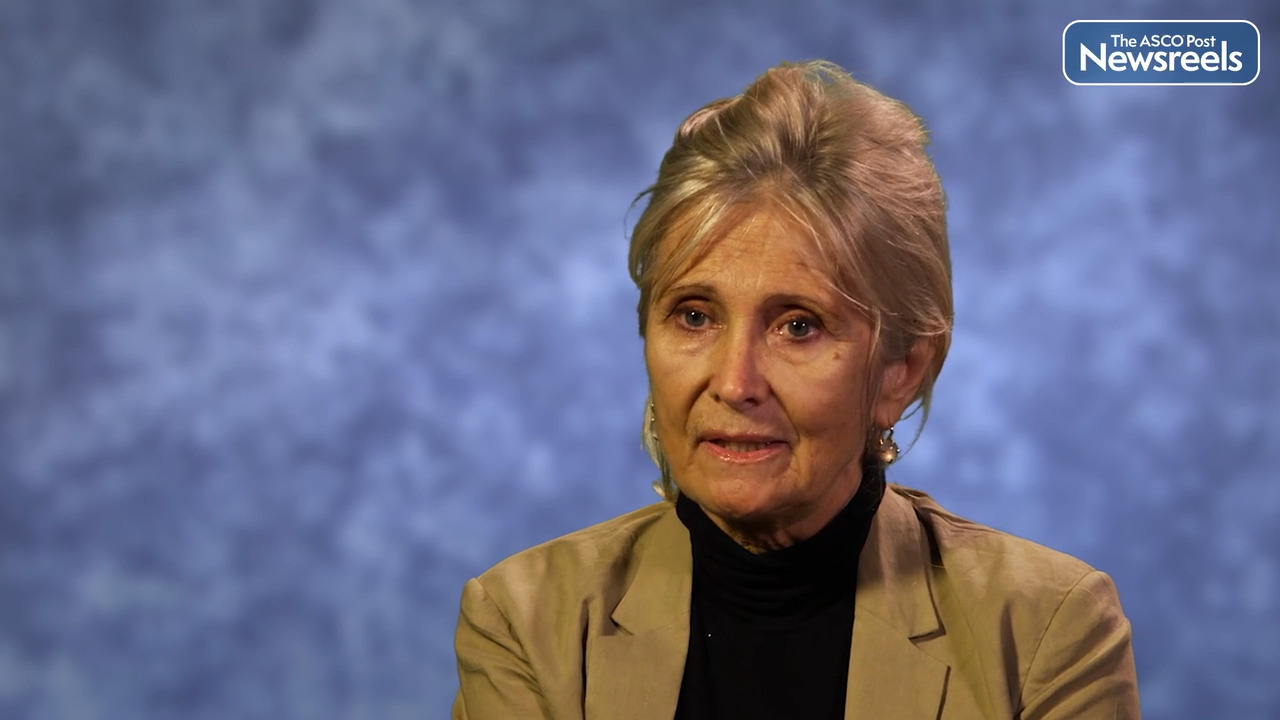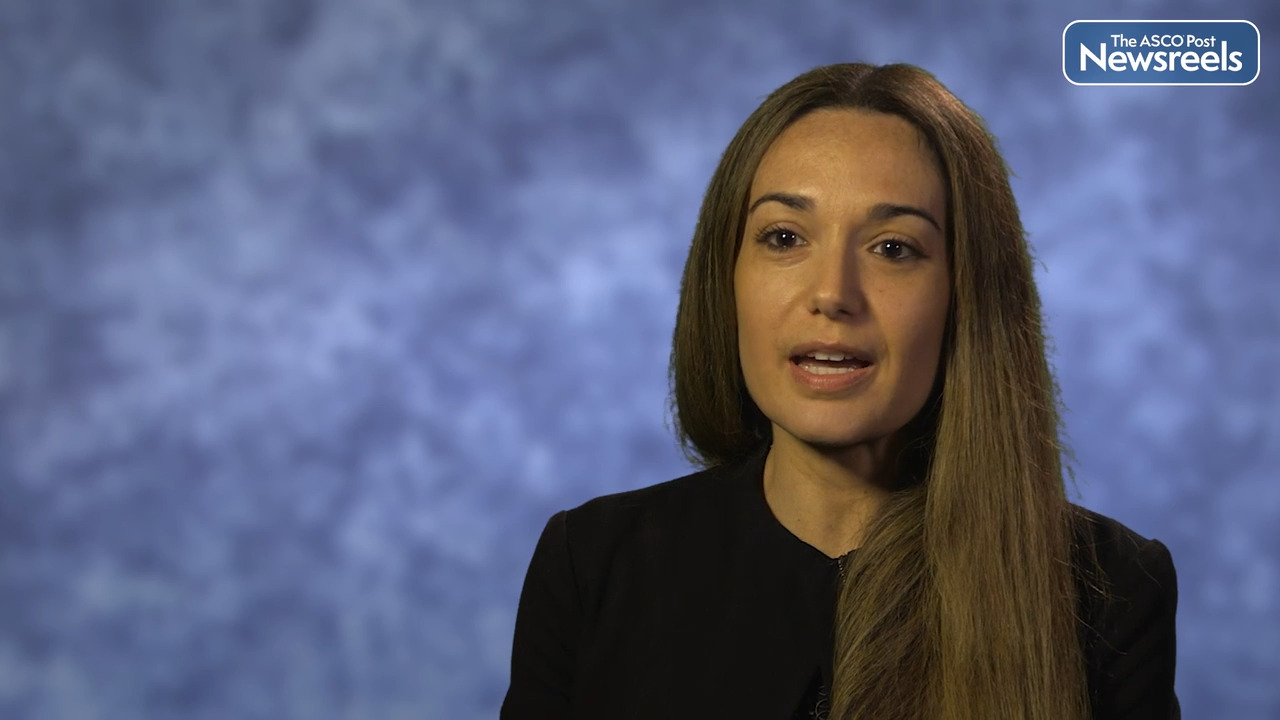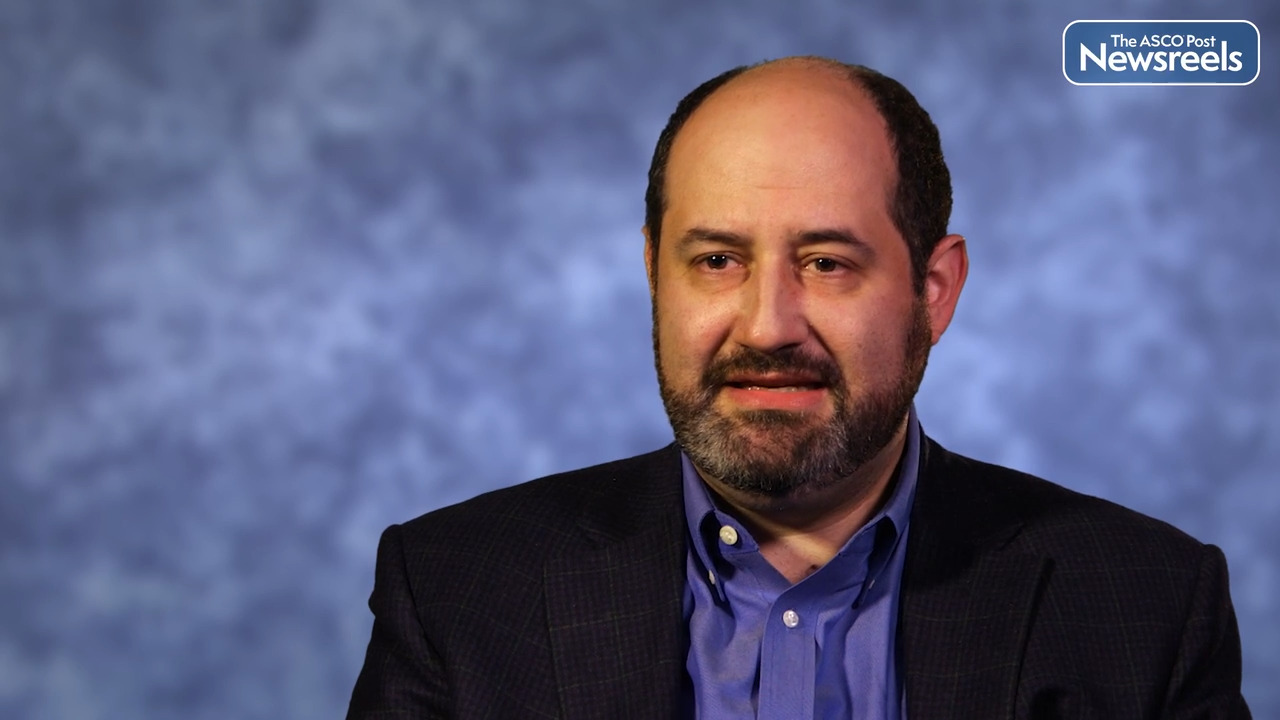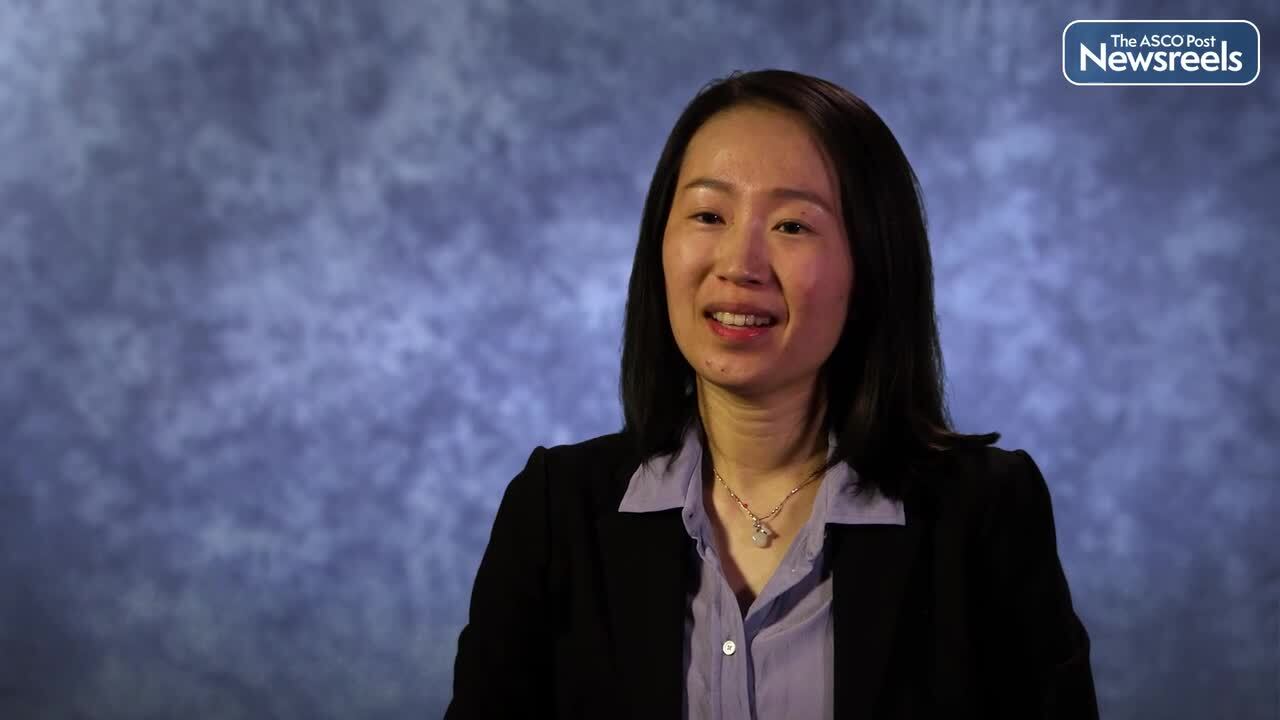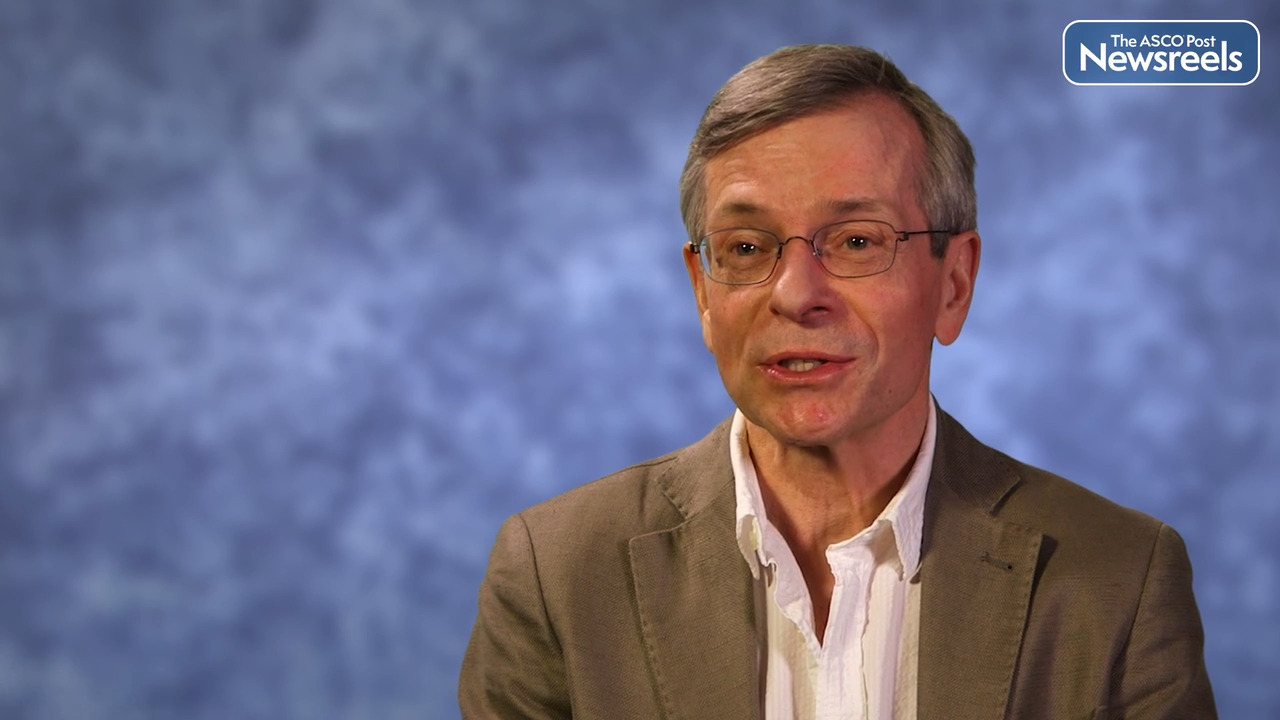SBRT Plus Nivolumab With or Without Ipilimumab in Refractory Metastatic Pancreatic Cancer
In the Danish single-institution phase II CheckPAC study reported in the Journal of Clinical Oncology, Chen et al found that the combination of nivolumab and ipilimumab plus stereotactic body radiotherapy (SBRT) improved the clinical benefit rate vs nivolumab plus SBRT in patients with refractory...
Study Reports New Potential Target for CAR T-Cell Therapy
Chimeric antigen receptor (CAR) T-cell therapy has made an impact on the treatment of certain blood cancers, but in clinical study, the cellular therapy has not been as successful for patients with solid tumors, due in part to the lack of tumor targets not expressed in vital tissues. In a new study ...
Demystifying Immunotherapy for Early-Stage Triple-Negative Breast Cancer
Immunotherapy has become a potential strategy in treating triple-negative breast cancer, though many questions remain to be answered before long-term survival is achieved by all patients. This exciting field of breast cancer research was explored at the 2022 Miami Breast Cancer Conference by...
Rates of Neurologic Adverse Events in Randomized Trials of Immune Checkpoint Inhibitors in Patients With Cancer
In a meta-analysis reported in JAMA Network Open, Farooq et al found that immune checkpoint inhibitor therapy for cancer was associated with a lower risk of neurologic adverse events compared with treatment with other agents overall in randomized trials comparing immune checkpoint inhibitors with...
Gut Microbiome May Alter Response to Cancer Therapy
Recent findings with the use of sequencing technology have suggested that the gut microbiome may play a role in the treatment of cancer. A review paper published in JAMA Oncology by Liu and Shah captured the current understanding of the connection between the gut microbiome and therapeutic response ...
Study Finds CAR T-Cell Therapy Outcomes, Side Effects Are Similar in Black and Hispanic Patients Compared to White and Asian Patients
Chimeric antigen receptor (CAR) T-cell therapy has revolutionized the treatment of blood cancers, including certain leukemias, lymphomas, and multiple myeloma. However, Black and Hispanic patients were largely absent from the major clinical trials that led to the U.S. Food and Drug Administration...
Gulam A. Manji, MD, PhD, on Gastric and Gastroesophageal Junction Adenocarcinomas: New Data on Pembrolizumab Plus Capecitabine and Oxaliplatin
Gulam A. Manji, MD, PhD, of Columbia University Medical Center, discusses phase II results on perioperative combination chemotherapy and pembrolizumab in patients with resectable gastric cancer. The combination appeared to result in many complete pathologic responses (Abstract CT009).
Lillian L. Siu, MD, on Looking Toward the Future of Clinical Research and Clinical Trials
Lillian L. Siu, MD, of Canada’s Princess Margaret Cancer Centre, discusses biomarker-driven precision cancer medicine, the optimal sequencing of immunotherapy (IO) with standard treatments in curative settings, IO targets beyond PD-1/PD-L1 and combinatorial strategies, and next-generation adoptive cell therapies (Abstract PL06).
Addition of Pembrolizumab to Chemotherapy Improves Event-Free Survival in Triple-Negative Breast Cancer
As reported in The New England Journal of Medicine by Peter Schmid, MD, PhD, of Barts Cancer Institute, Queen Mary University of London, and colleagues, a preplanned interim analysis of the phase III KEYNOTE-522 trial has shown improved event-free survival with the addition of pembrolizumab to...
Tislelizumab Plus Chemotherapy Improves Progression-Free Survival in Nasopharyngeal Cancer
The addition of the checkpoint inhibitor tislelizumab to first-line chemotherapy significantly reduced the risk of disease progression or death by 50% and, despite a 49% crossover rate, numerically boosted overall survival in patients with recurrent or metastatic nasopharyngeal cancer, Zhang et al...
Genevieve Boland, MD, PhD, on Advanced Melanoma: Best Management Practices
Genevieve Boland, MD, PhD, of Massachusetts General Hospital Cancer Center, discusses targeted treatments and immunotherapies and how they have dramatically changed the landscape in melanoma. Initially used in advanced disease, these agents are now being used in local or locoregional melanoma in the adjuvant and/or neoadjuvant settings. Dr. Boland also talks about the critical importance of multidisciplinary teams to integrate the latest recommendations for patient care.
Nicolas Girard, MD, PhD, on NSCLC: New Data on Event-Free Survival With Nivolumab Plus Platinum-Doublet Chemotherapy
Nicolas Girard, MD, PhD, of the Institut Curie, discusses findings from the phase III CheckMate 816 trial, which is the first study with an immunotherapy-based combination to demonstrate improved event-free survival and pathologic complete response in the neoadjuvant setting for patients with resectable stage IB to IIIA non–small cell lung cancer. The results may benefit the 30% to 55% of patients whose cancer recurs after surgery (Abstract CT012).
Researchers Seek to Expand Immunotherapy Options for Patients With Advanced Breast and Colorectal Cancers
Two presentations given at the American Association for Cancer Research (AACR) Annual Meeting 2022 focused on promising strategies for making breakthrough immunotherapies work for more patients. Both studies report findings from clinical trials that advance a novel immunotherapy platform in...
Biomarker-Driven Assessment of Nivolumab, Nivolumab/Ipilimumab, and VEGFR Tyrosine Kinase Inhibitors in First-Line Treatment of Metastatic Clear Cell RCC
In the French phase II BIONIKK trial reported in The Lancet Oncology, Vano et al assessed outcomes of first-line treatment with nivolumab with or without ipilimumab and VEGFR tyrosine kinase inhibitors given according to characteristics of molecular subgroups in patients with metastatic clear cell...
In the Neoadjuvant Setting, Combination Immunotherapy With Durvalumab Is More Effective Than Durvalumab Alone for Early-Stage NSCLC
Combination immunotherapy with the anti–PD-L1 monoclonal antibody durvalumab and other novel agents outperforms durvalumab alone in the neoadjuvant setting for early-stage non–small cell lung cancer (NSCLC), according to research presented by Cascone et al at the American Association for Cancer...
New CAR T-Cell Therapy for Solid Tumors Was Safe and Showed Early Efficacy
A new chimeric antigen receptor (CAR) T-cell product had an acceptable safety profile and showed early signs of efficacy as a monotherapy and in combination with an mRNA vaccine in patients with solid tumors, according to preliminary data from a phase I/II clinical trial presented by Haanen et al...
Iván Márquez-Rodas, MD, PhD, on Advanced Melanoma: Efficacy of Intratumoral BO-112 With Systemic Pembrolizumab
Iván Márquez-Rodas, MD, PhD, of Spain’s Hospital General Universitario Gregorio Marañón, discusses final results of the phase II SPOTLIGHT203 study of systemic pembrolizumab in combination with intratumoral BO-112 for patients with advanced melanoma refractory to anti–PD-1–based therapy. The regimen achieved an overall response rate of 25% and a disease control rate of 65% (Abstract CT014).
Silvia C. Formenti, MD, on Adapting Radiation Therapy to Immune Checkpoint Blockade
Silvia C. Formenti, MD, of Weill Cornell Medicine, discusses research on the best way to integrate radiotherapy with immune modifiers, which might require changes in standard radiation oncology practices. Variables such as the type of treatment fields, the inclusion of draining nodal stations, the degree of exposure of circulating immune cells, the type of dose fractionation, and the timing of radiotherapy during immune checkpoint blockade all can affect the success of immunoradiotherapy combinations (Abstract SY43).
Tina Cascone, MD, PhD, on NSCLC: New Findings From the NeoCOAST Trial on Durvalumab-Based Therapy
Tina Cascone, MD, PhD, of The University of Texas MD Anderson Cancer Center, discusses the findings of the phase II NeoCOAST study, which showed that combination immunotherapy with the anti–PD-L1 monoclonal antibody durvalumab and other novel agents resulted in numerically higher major pathologic response rates than durvalumab alone in the neoadjuvant setting for patients with early-stage resectable non–small cell lung cancer. Translational results also supported combination therapies over single-agent therapy (Abstract CT011).
Ari M. VanderWalde, MD, MPH, MBioeth, on Melanoma: New Data on Ipilimumab and Nivolumab
Ari M. VanderWalde, MD, MPH, MBioeth, of The West Clinic, discusses results from the S1616 trial involving patients with metastatic or unresectable melanoma who had primary resistance to PD-1 or PD-L1 inhibitors. Compared with ipilimumab alone, the combination of ipilimumab plus nivolumab benefited some patients: those with tumors that responded to therapy showed an increased amount of CD8+ cells. Because there is no standard treatment for metastatic melanoma after failure of PD-1 inhibitors in BRAF wild-type disease, this research may provide a viable option in the future (Abstract CT013).
Patients With Lung Cancer and a Genetic Variant Linked to Autoimmune Disease May Be Especially Responsive to Immunotherapy
A variant of the CTLA-4 gene associated with autoimmune disease was found to be more frequent in patients with non–small cell lung cancer (NSCLC) who experienced an exceptionally high response to anti–PD-1 immunotherapy and a higher rate of immune-related side effects than in a comparable cohort of ...
Yaqi Zhao, MSc, on ALL: Molecular Profile and Efficacy of Inotuzumab Ozogamicin
Yaqi Zhao, MSc, of St. Jude Children’s Research Hospital, discusses findings from the phase III INO-VATE trial, which showed that inotuzumab ozogamicin reduced the signs and symptoms of acute lymphoblastic leukemia associated with a variety of gene and chromosome changes. Future studies may confirm which patients are more likely to benefit from this agent (Abstract CT027).
John B.A.G. Haanen, MD, PhD, on Solid Tumors: Early Study Results on CAR T Cells and the CARVac Vaccine Strategy
John B.A.G. Haanen, MD, PhD, of the Netherlands Cancer Institute, discusses findings from a phase I study designed to test the safety and efficacy of the CARVac (CAR-T cell-amplifying RNA vaccine) strategy to overcome poor CAR T-cell stimulation and responses in patients with CLDN6-positive advanced solid tumors. Men with testicular cancer in particular showed encouraging responses. Overall, some patients showed long-term CAR T-cell persistence more than 150 days post infusion. Partial responses seemed to deepen further over time (Abstract CT002).
Expert Point of View: Guru P. Sonpavde, MD
Guru P. Sonpavde, MD, Director of the Bladder Cancer Program at Dana-Farber Cancer Institute, Boston, said the therapeutic landscape of urothelial cancer has been altered by PD-L1 inhibitors and antibody-drug conjugates. “The rationale for Cohort 3 was based on high response rates seen with a...
Second-Line Combination Study in Urothelial Cancer
The combination of the antibody-drug conjugate sacituzumab govitecan-hziy and the immune checkpoint inhibitor pembrolizumab yielded antitumor activity as second-line therapy in patients with platinum-refractory, checkpoint inhibitor–naive, metastatic urothelial cancer, according to the results of...
EGFR Inhibition in EGFR-Amplified Advanced Gastroesophageal Cancer
As reported in the Journal of Clinical Oncology by Maron et al, a retrospective study found that use of EGFR inhibitor therapy was associated with benefit in patients with unresectable or metastatic EGFR-amplified gastroesophageal adenocarcinoma. As stated by the investigators, “Subset analyses...
Immune-Related Adverse Events With Immune Checkpoint Inhibitor Treatment for Melanoma in Older White Patients
In a population-based cohort study reported in JAMA Network Open, Schonfeld et al identified the incidence of immune-related adverse events among White patients aged ≥ 65 years with newly diagnosed melanoma treated with immune checkpoint inhibitors. They compared the risk of these adverse events...
Outcomes With Pembrolizumab, Pembrolizumab/Chemotherapy, and Cetuximab/Chemotherapy by PD-L1 CPS in Recurrent/Metastatic Head and Neck Cancer
In a post hoc analysis of the KEYNOTE-048 trial reported in the Journal of Clinical Oncology, Barbara Burtness, MD, and colleagues found that survival results with pembrolizumab and pembrolizumab/chemotherapy vs cetuximab/chemotherapy in patients with recurrent or metastatic head and neck squamous...
FDA Approves Axicabtagene Ciloleucel for the Second-Line Treatment of Large B-Cell Lymphoma
On April 1, the U.S. Food and Drug Administration (FDA) approved axicabtagene ciloleucel (Yescarta) for adult patients with large B-cell lymphoma (LBCL) who are refractory to first-line chemoimmunotherapy or who experienced relapse within 12 months of first-line chemoimmunotherapy. It is not...
Several Studies Evaluate Agents in the First-Line, Second-Line, and Later Treatment of Advanced Kidney Cancer
The combination of nivolumab plus cabozantinib achieved a continued survival benefit compared with sunitinib in patients with untreated clear cell metastatic or advanced renal cell carcinoma, according to a final overall survival analysis of the phase III CheckMate 9ER trial.1 Additionally,...
DESTINY-Breast03 Trial: T-DXd vs T-DM1 in Previously Treated Patients With Metastatic HER2-Positive Breast Cancer
As reported in The New England Journal of Medicine by Javier Cortés, MD, PhD, and colleagues, the phase III DESTINY-Breast03 trial has shown significantly prolonged progression-free survival with fam-trastuzumab deruxtecan-nxki (T-DXd) vs ado-trastuzumab emtansine (T-DM1) in patients with...
Cabozantinib Plus Nivolumab in Advanced Non–Clear Cell Renal Cell Carcinoma
In a single-institution phase II study reported in the Journal of Clinical Oncology, Chung-Han Lee, MD, PhD, and colleagues found that the combination of cabozantinib and nivolumab was active in patients with advanced non–clear cell renal cell carcinoma (RCC) variants, particularly those with...
PD-1 Inhibition in Patients With Classic or Endemic Kaposi Sarcoma
In a French phase II study reported in The Lancet Oncology, Delyon et al found that pembrolizumab produced a high response rate in patients with classic or endemic Kaposi sarcoma with progressive cutaneous extension requiring systemic treatment. As stated by the investigators, “Although the...
Study Evaluates Response-Based Immunotherapy Strategy in Patients With Advanced Urothelial Carcinoma
In a phase II study (TITAN-TCC) reported in the Journal of Clinical Oncology, Grimm et al found that a nivolumab/ipilimumab boost in patients with advanced urothelial cancer who did not respond to nivolumab monotherapy alone increased objective response rates, with the benefit being greatest in...
Expert Point of View: Anthony El-Khoueiry, MD
Anthony El-Khoueiry, MD, Member of the Section of Gastrointestinal Cancers, Director of the phase I program, and Associate Professor of Clinical Medicine at the Keck School of Medicine of the University of Southern California and USC Norris Comprehensive Cancer Center, said the findings of the...
HIMALAYA Trial: First-Line Tremelimumab Plus Durvalumab Improves Overall Survival in Unresectable Hepatocellular Carcinoma
Patients with advanced, unresectable hepatocellular carcinoma may be gaining another first-line treatment option. In the global phase III HIMALAYA trial, a single priming dose of tremelimumab plus regular-interval durvalumab significantly improved overall survival, according to Ghassan K....
Expert Point of View: Ian Chau, MD
Invited discussant Ian Chau, MD, Consultant Medical Oncologist at The Royal Marsden Hospital in London and Surrey in the United Kingdom, said the findings from COSMIC-312 are not mature enough to establish cabozantinib/atezolizumab as a new front-line option for advanced hepatocellular carcinoma...
COSMIC-312: Cabozantinib Plus Atezolizumab Improves Progression-Free Survival in Advanced Hepatocellular Carcinoma
The phase III COSMIC-312 study has met its primary endpoint, showing a significant improvement in progression-free survival with cabozantinib plus atezolizumab compared with sorafenib in treatment-naive hepatocellular carcinoma (HCC), investigators reported at a European Society for Medical...
Expert Point of View: Chris Verslype, MD, PhD
The invited discussant of the RATIONALE 208 trial, Chris Verslype, MD, PhD, Professor of Medicine at University Hospitals Leuven in Belgium, said tislelizumab is an “active and safe” investigational PD-1 antibody, “comparable to other PD-1 agents.” In particular, he noted, the results of RATIONALE...
RATIONALE 208: ‘Durable Clinical Activity’ Reported With Tislelizumab in Advanced Liver Cancer
With the investigational checkpoint inhibitor tislelizumab, durable responses were achieved by some patients with previously treated advanced hepatocellular carcinoma, regardless of the number of prior lines of therapy, in the phase II RATIONALE 208 trial. These findings were presented during the...
Expert Point of View: Nilofer Azad, MD
Nilofer Azad, MD, Professor of Oncology at Johns Hopkins University School of Medicine and Co-Director of Cancer Genetics and Epigenetics at the Sidney Kimmel Comprehensive Cancer Center, Baltimore, was invited to discuss the results of the phase III TOPAZ-1 study, which found an overall survival...
TOPAZ-1: Overall Survival Prolonged With First-Line Immunotherapy Plus Chemotherapy in Biliary Tract Cancer
For the first time, a phase III study has shown an overall survival benefit for upfront treatment using immunotherapy plus chemotherapy in advanced biliary tract cancer. In the TOPAZ-1 trial, the addition of the anti–PD-L1 agent durvalumab to gemcitabine plus cisplatin significantly improved...
KEYNOTE-811: Pembrolizumab Plus Trastuzumab and Chemotherapy in Previously Untreated Advanced HER2-Positive Gastric Adenocarcinoma
As reported in Nature by Yelena Y. Janjigian, MD, of the Gastrointestinal Oncology Service at Memorial Sloan Kettering Cancer Center, and colleagues, the first interim analysis of the phase III KEYNOTE-811 trial has shown a significantly higher objective response rate with the addition of...
Recent FDA Approvals in Gastrointestinal Cancer
Over the past year, the U.S. Food and Drug Administration granted approval to several novel drugs and new indications for older therapeutic agents used in gastrointestinal oncology. Cetuximab Plus Encorafenib On September 28, 2021, cetuximab (Erbitux) was approved in combination with encorafenib...
Expert Point of View: Samuel J. Klempner, MD
Samuel J. Klempner, MD, Associate Professor at Massachusetts General Hospital and Harvard Medical School, commented on the NEONIPIGA study for The ASCO Post. “This study was the first prospective data set to show what many have suspected—that neoadjuvant immune checkpoint blockade would lead to a...
Neoadjuvant Checkpoint Inhibitor Doublet Yields Complete Responses in Gastroesophageal Cancers
In patients with resectable microsatellite instability–high (MSI-H)/mismatch repair–deficient (dMMR) gastric and gastroesophageal junction adenocarcinoma, dual checkpoint inhibition with ipilimumab and nivolumab given as neoadjuvant therapy led to a pathologic complete response rate of 58.6%,...
Adding Pembrolizumab to Chemotherapy Improves Overall and Progression-Free Survival in First-Line Treatment of Advanced Esophageal Cancer
As reported in The Lancet by Jong-Mu Sun, MD, of Samsung Medical Center, Sungkyunkwan University, Seoul, and colleagues, an interim analysis in the phase III KEYNOTE-590 trial has shown that the addition of first-line pembrolizumab to chemotherapy resulted in improved overall and progression-free...
Adding First-Line Nivolumab to Chemotherapy Improves Survival in Gastric, Gastroesophageal Junction, and Esophageal Adenocarcinomas
As reported in The Lancet by Yelena Y. Janjigian, MD, of the Gastrointestinal Oncology Service, Memorial Sloan Kettering Cancer Center, and colleagues, the phase III CheckMate 649 trial has shown that the addition of first-line nivolumab to chemotherapy resulted in improved overall and...
Atezolizumab Induces Responses in Advanced Penile Cancer, but Biomarkers Needed to Improve Patient Selection
Use of the immune checkpoint inhibitor atezolizumab with or without radiotherapy showed antitumor activity in stage IV penile cancer in the phase II PERICLES trial, although the study failed to meet the primary endpoint of 1-year progression-free survival of at least 35%. The hints of activity were ...
ARIES Trial: Avelumab Failed to Improve 1-Year Survival in PD-L1–Positive Advanced Urothelial Cancer
First-line treatment with the PD-L1 antibody avelumab failed to meet the primary endpoint of an improvement in overall survival at 1 year for patients with cisplatin-ineligible, PD-L1–positive advanced urothelial cancer. However, the objective response and disease control rates were favorable in...
